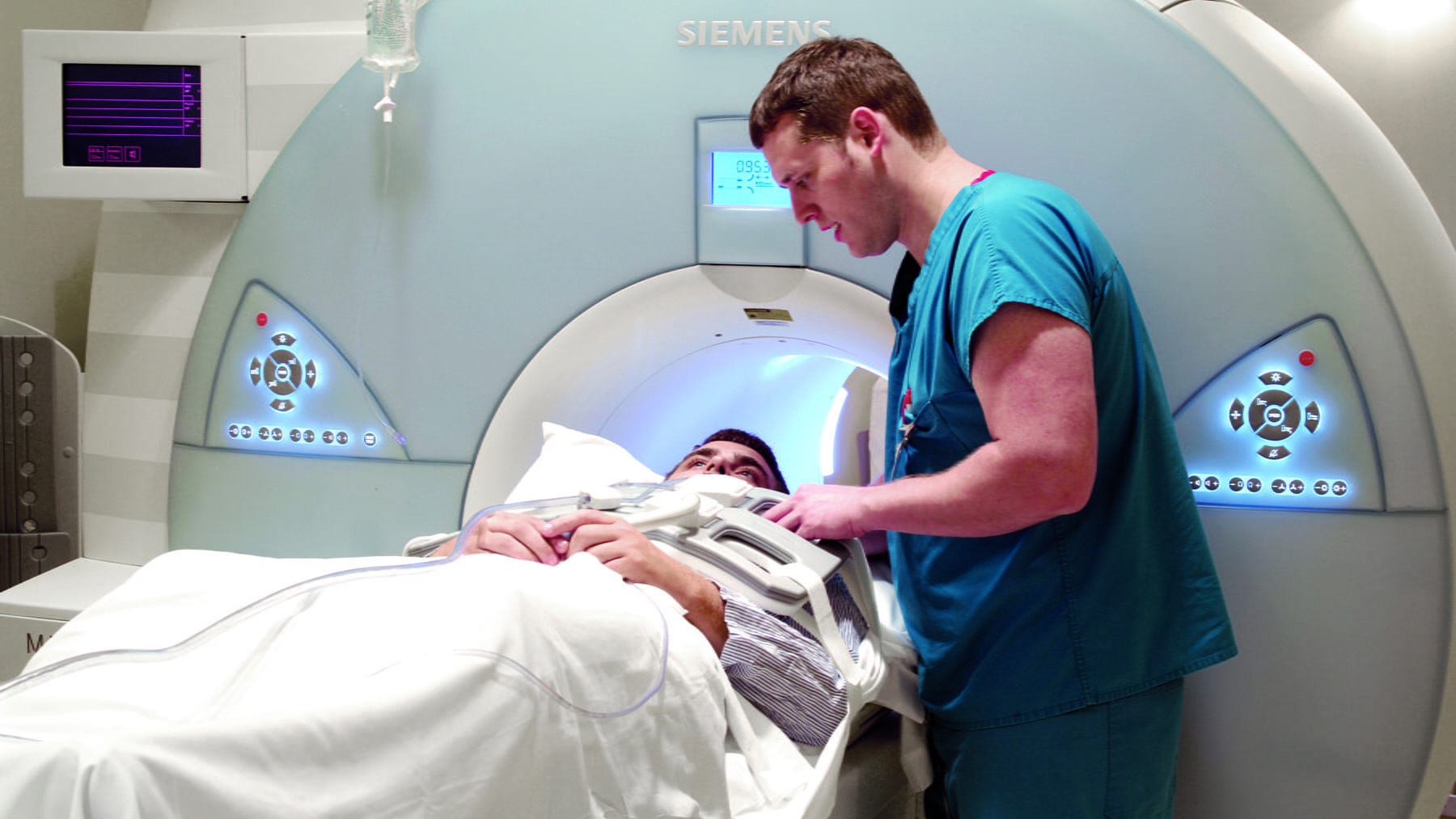What to expect before, during and after an MRI scan

If you’ve never experienced a magnetic resonance imaging (MRI) scan before, you might be anxious about what to expect.
But MRI scans are very safe and, unlike CT or X-ray scans, they don’t involve radiation because images are gathered using magnets. It’s typically a pleasant experience, and the imaging makes an enormous difference in helping doctors diagnose and treat certain medical conditions.
What is MRI?
MRI is what we call an “advanced imaging study.” It shows, in fine detail, what’s happening inside your soft tissues (parts of your body that aren’t bone).
Sometimes when undergoing an MRI scan, you’ll receive a contrast solution, which is a liquid given orally or through an IV. The solution can brighten certain areas of the body so that we can distinguish the structures and disease changes in your body more easily.
Why might I need an MRI scan?
There’s a long list of health conditions that MRI can help doctors monitor.
Among the conditions that we can diagnose and track from MRI are tumors, certain inflammatory and infectious diseases, spine abnormalities, joint problems, brain injuries and structural issues in your heart.
What do I need to prepare for an MRI scan?
Generally, you don’t have to do much to prepare before heading to the hospital or radiology lab. Once you arrive, a doctor or MRI technician will review medical conditions and history in a comprehensive safety screening and address any issues at that point.
However, for certain MRI examinations, you could be required to fast beforehand and will be notified by your doctor if that’s needed.
If you’ve had an MRI before and had an allergic reaction to any contrast solutions that were used, you could be asked take medication beforehand to reduce your risk of having another reaction.
If you’re claustrophobic and very nervous about undergoing an MRI scan, talk with your doctor about it beforehand. They may prescribe a sedative to help the experience go more smoothly for you.
What do I need to tell MRI technicians about medical conditions I have?
It’s important for the team to know about any implants or other “foreign bodies” you may have. This includes pacemakers, artificial heart valves, cochlear implants, joint implants and retained metal that remain in your body from previous injuries.
Remove metallic jewelry, including glasses. Tattoos usually are safe in MRI, but let technicians know about them so that they can make sure the size of tattoo and/or the type of ink used won’t be an issue.
If you have kidney disease, the team also will want to know so that they can gauge whether it’s appropriate to use a contrast solution.
If there’s a chance you might be pregnant, you’ll also be tested. MRI is generally safe during pregnancy, but if the team needs to use a contrast solution in your body to help make the images clearer, they may use alternative methods to make sure the fetus isn’t affected.
At The Ohio State University Wexner Medical Center, the pre-MRI screening process is extremely thorough, so your MRI team will know to ask you about these issues even if you forget to alert them.
What happens before I get into the MRI machine?
When you arrive at the MR suite, the technologist usually asks you to change into a hospital gown or loose-fitting clothing. You’ll lie on a firm table that eventually slides into the center of a donut-shaped cylindrical magnet.
You may be given earplugs. Some MRI suites will provide you with noise-canceling headphones, which soften the noise of the machine and give the technician an easy way to communicate instructions to you. Between instructions, you can relax and, if you wish, listen to music of your choice.
What will I feel or hear in the MRI machine?
Once you’re inside the machine, you’ll hear some buzzing, clunking and squeaking sounds as technicians switch the intensity of the magnet.
Some patients may feel some heat during an MRI scan, but this is rare.
Your job is simply to lie still while the machine takes images of your body. Some people even describe the experience as relaxing.
But if you’re ever uncomfortable, it’s easy to communicate with the technician, who’s there during the entire scan, to let them know that you need to change positions or come out of the machine.
What happens after an MRI scan?
If you were given a contrast solution, you’ll be monitored for a few minutes to ensure you haven’t had a rare, allergic reaction to it.
Afterward, you can go home while a radiologist (a doctor who is an expert in evaluating imaging scans) inspects your images and communicates with your healthcare team to discuss your diagnosis and questions they might have.
If you have any questions about the scan or the results, your radiologists are always available and happy to address your particular needs and any questions that you may have to make sure you have the best possible imaging care.
Mina S. Makary is chief resident in the Department of Radiology at The Ohio State University Wexner Medical Center.





